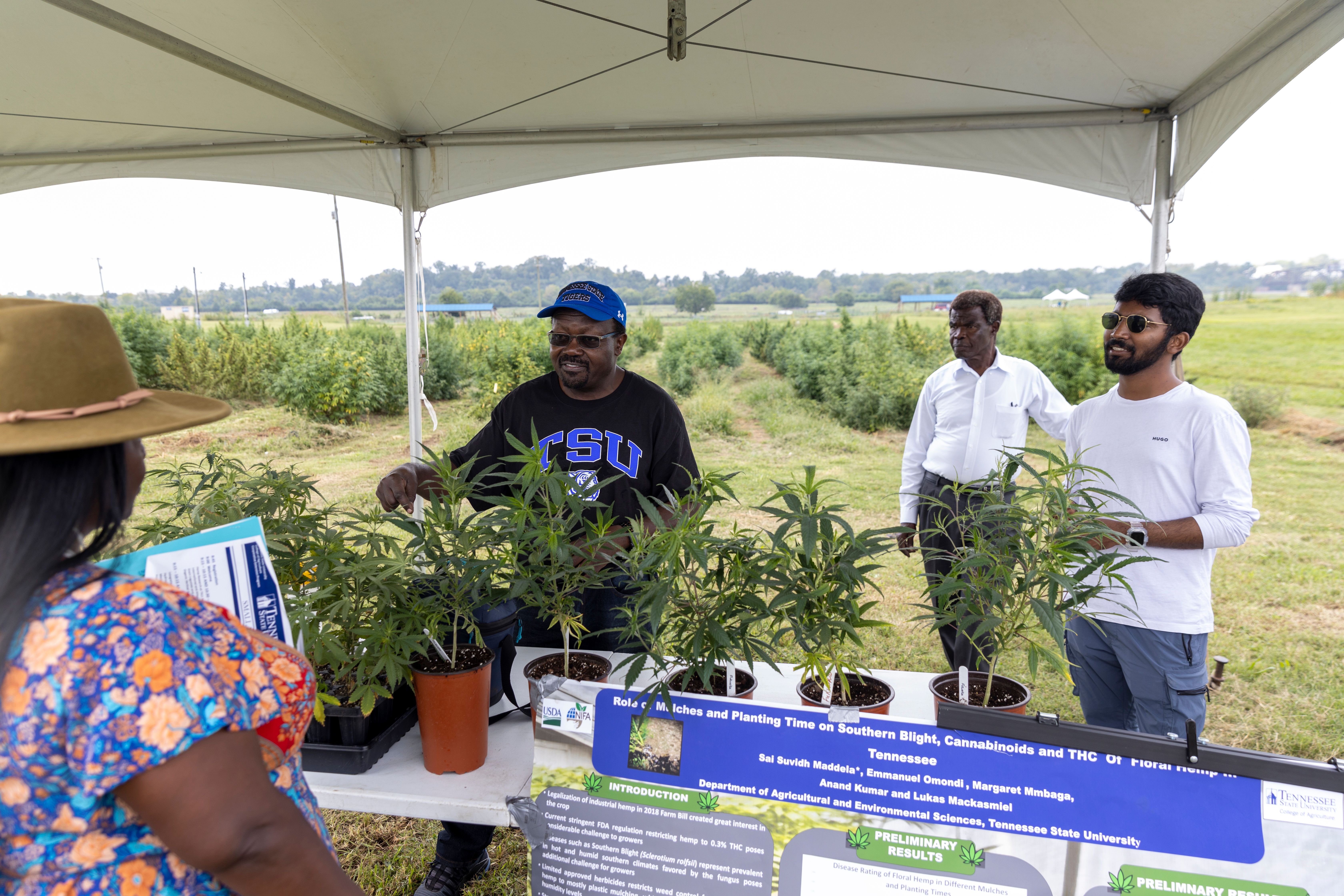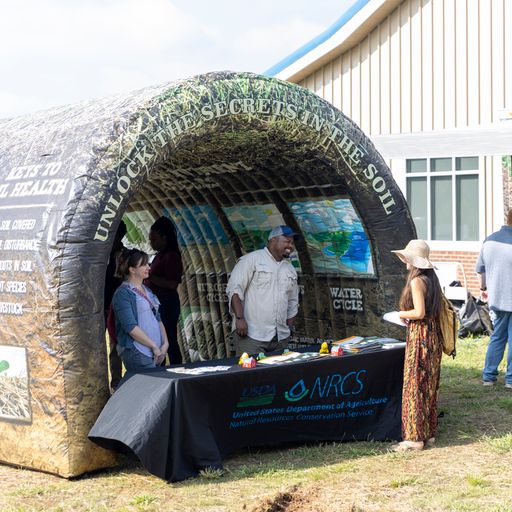NASHVILLE, Tenn. (TSU News Service) – For nearly two decades, Tennessee State University has provided vital resources to the State’s small farmers. One of the major resources is the TSU Small Farm Expo. The event is dedicated to supporting small-scale farming, along with providing sustainable practices and agricultural education.
Dr. Chandra Reddy, the dean of the college of agriculture expressed the university’s commitment to the event.
“This is the very purpose of why we exist,” Reddy said. “As a land-grant institution, we want to support the producers.”
The event drew over 250 attendees, including more than 60 university students, and featured workshops, engagement speakers, and farmers.
Finis Stribling, III chaired this year’s Small Farm Expo and noted that one of those small farmers is Danielle Buyton. Buyton was recognized as the 2023 TSU New Small Farmer of the year and received $3,000 to support her farming efforts.
“We started this expo about 19 years ago to showcase what TSU is doing in relation to small farms,” Stribling said.
Aria McElroy, a senior agricultural science major with a concentration in environmental science, was among the dozens of students who attended the expo.

“After I graduate in May, I would love to work with the Natural Resources Conservation Service and get a strong foundation of what conservation is like and how I can bring that to private and public land.”
Aria, an 1890 Farm Bill scholar, also highlighted the significance of seeing Black farmers and landowners.
“It’s really good for TSU to have this event. Just seeing black farm and landowners in this space is great.”
In addition to chairing the expo, Stribling is the director of the academy. He is also a third-generation farmer and established the academy to support beginner small farmers across the country.Stribling noted how the New Farmer Academy graduates play a pivotal role in expanding the small farming community to sustain production in our ecosystem.

“We are here to showcase research relevant to small farms across Tennessee,” he said.
Stribling added that Buyton is also a graduate of the TSU New Farmer Academy, the only academy of its kind in the State that has graduated over 530 farmers from across the country.
Tennessee Agriculture Commissioner Charlie Hatcher was one of several state officials who attended the expo and praised the New Farmer Academy, reaffirming the importance of supporting small-scale farming and sustainable agriculture practices.
“It’s one of the best training programs for new farmers and beginning farmers in the United States. It’s been so impactful,” Hatcher said.
“It’s one of the most worthwhile programs we need to get behind. It’s going to make a difference in the interests of people.”
Reggie Marshall is a small farmer working to have an impact and credits TSU for his success. Marshall is also one of the first graduates of the TSU New Farmer Academy established in 2014. As he walked and greeted others at the expo he reflected on the important work the TSU College of Agriculture is doing for small farmers across the state.
“In order to make these small farms viable, we need programs like the New Farm Academy because it walks you through every phase of getting started,” he explained.
The Expo featured speakers from local, state and federal levels, and provided workshops on topics such as urban agriculture, hemp research, organic agriculture, vertical gardening, bee keeping, food demonstrations, food crop production, and more.
TSU student, Sydney Wyche, a sophomore from Huntsville, echoed Aria’s sentiments regarding how beneficial the event was. Sydney attended the Expo to learn more about the agricultural companies and opportunities available.
“I am looking for internships and trying to find new connections,” Wyche said.

“I wanted to learn more about the agricultural companies. From the medicine you take to what you eat, agriculture is connected to everything.”
In addition to being a resource, the expo serves as a platform to bring small farmers together and as well as extension agencies from across the state.














